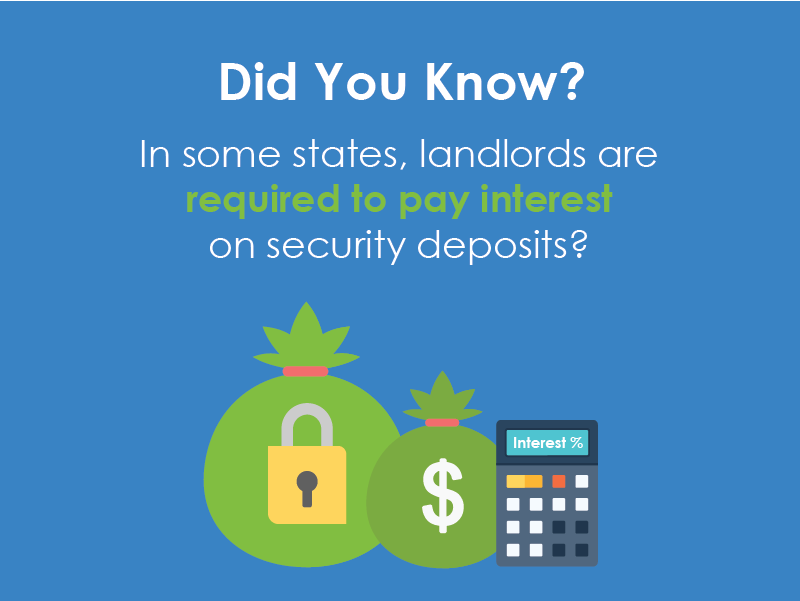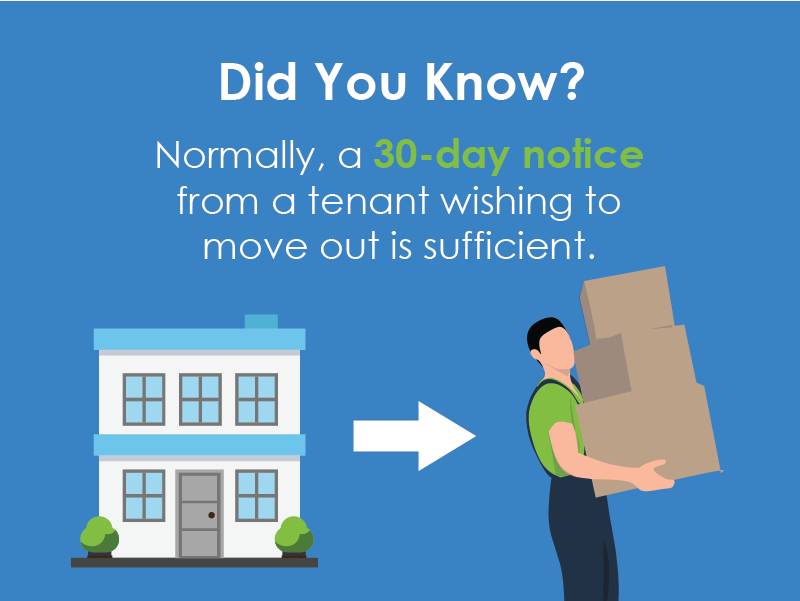Apartments and multi-family buildings are quite similar to condos. The biggest difference is that an apartment is typically owned by one landlord and units are rented out to tenants, whereas owners can purchase individual units in a condo development. Apartments don’t have an elected board of directors, either. Instead, rules are created and enforced by the landlord or property management team.
Table of contents
Tenants who live in multi-family buildings must follow the rules established by the landlord, as well as local and state laws. Similarly, landlords are required to follow laws that govern and regulate residential rentals and must also comply with local health, building and safety codes. Any repairs required to make the dwelling fit to live in must be paid for by the landlord.
Below are some common rules that apply to landlords and tenants. It’s important to note that landlord rights and obligations vary depending on the state and county you live in. Always check local and state laws, and consult with an attorney if you ever have doubts or questions.
Maintenance
It is the landlord’s responsibility to maintain units in an apartment or multi-family building. That means looking after electrical wiring, heating, flooring, countertops, windows, etc. Landlords must comply with this obligation, even if:
- The tenant was made aware of problems in the unit before they moved into it
- The lease says that the tenant is responsible for maintenance
However, tenants are responsible for keeping the apartment clean. They are also responsible for any damage to the rental property caused by them or by their guests. For example, if they put a hole in the drywall, or clog a sink, then they must pay for those repairs.
Landlords are strongly encouraged to address and resolve any maintenance or service requests as soon as possible. Having a property management platform with a service request feature can simplify and expedite the entire process.
Tenants are not permitted to withhold rent even if they are unhappy with how long it’s taking for their request to be closed. Any serious disputes between a landlord and tenant should be brought to a court or body that governs landlord-tenant issues.
Deposits
Landlords can ask tenants for a security deposit as part of the lease agreement. This deposit would be held by the landlord to cover unpaid rent, damages, or cleaning fees if the tenant moved out suddenly and failed to pay a month’s rent, or if they did not properly care for the unit. The deposit is returned to the tenant when they move out – if the unit is clean and intact.
The amount of the security deposit is often equal to one month’s rent. However, in places like Illinois, there is no legal limit on the amount a landlord can require (but some municipalities specify by local ordinance the minimum or maximum security deposit amount).
In California, there is a maximum amount of money a landlord can charge a tenant for a security deposit, but it’s calculated based on whether a unit is furnished. For unfurnished units, landlords can’t charge more than two months’ worth of rent. For furnished rentals, they can’t charge more than three months’ worth of rent.
The Illinois Security Deposit Return Act requires landlords to return a security deposit in full within 45 days of the date their tenant moves out if:
- The building or complex consists of five or more units
- The tenant does not owe any back rent
- The unit has not sustained damage
- The unit is reasonably clean (no garbage or furniture left behind)
In Illinois, if a landlord cannot return some or all of the security deposit, they must give the tenant an itemized statement of how the deposit was spent, along with paid receipts within 30 days of the tenant moving out. Landlords must have a valid reason for keeping a deposit. If a court finds that a security deposit law has been violated, the landlord could be liable for damages in an amount equal to two times the deposit, plus court costs and attorney fees.
In California, landlords only have 21 days to return security deposits.
Depending on where they live, landlords may also be required to pay interest on security deposits. Those in Illinois, for example, must pay interest if a deposit is held for at least six months and there are at least 25 units in the building or complex that the landlord owns. The landlord must either pay the interest to the tenant or apply the interest as a credit to the occupant’s rent every 12 months.

Collecting rent
Landlords are entitled to collect rent, in full, on the day that it is due. The due date should be clearly stated in the lease agreement, but most people will use the 1st of each month.
Landlords must provide tenants with a receipt for rent paid upon request. If a cash payment is made, they should provide a receipt, even if the tenant doesn’t request it.
Landlords cannot usually make tenants submit post‐dated checks or automatic debit payments. Under California law, it’s illegal for a landlord to require cash or electronic deposits as a sole payment option. Landlords must allow tenants to pay rent using checks, cashier’s checks or money orders. There is an exception to this rule though: if a tenant’s check bounces—or a request is made to stop payment on the check—then the landlord can require rent to be paid only in cash for up to three months. But, the landlord must give notice to the tenant in writing that rent must be paid in cash, as well as provide the tenant with some record of the bounced or cancelled check.
Landlords do not have to give tenants a grace period for rent, but may include it in the lease agreement if they choose to do so. If a grace period is in the lease, it should clearly state the date on which a late fee will be charged.
An online payment option is often preferred by tenants and landlords. Not only is it more convenient, but it has been shown to reduce late payments too.
Increasing rent
Landlords cannot raise the rent when a tenant is on a fixed-term lease. If a tenant has signed a one-year lease, then the landlord cannot raise the monthly rent midway through the tenancy.
However, if the tenant is renting month-to-month, either because they never signed a lease agreement or the agreement expired, the landlord can raise the rent.
Landlords must give written notice before increasing rent. In most cases, the landlord is required to give at least 30-days notice, but it can be more depending on local and state laws. Notices must be in writing.
In some states such as Florida, there is no limit on how much a landlord can raise the rent. Landlords must provide tenants with advanced written notice stating how much the rent will increase, when the increase comes into effect, and how the renter can submit payment. They must also be careful not to raise the rent too much, or they will have trouble attracting/keeping good tenants.
In New York City, the NYC Rent Guideline Board sets a cap on how much a landlord may increase rent, provided the building is protected by rent control.
Pets
Some landlords are within their right to issue a blanket ban on pets. This policy must be made very clear to prospective tenants as most would not want to have to choose between an apartment or their beloved pet. Keep in mind that service animals cannot be banned from a building.
In Ontario, Canada, a landlord cannot reasonably refuse pets. Even if a renter signs an agreement that states “no pets,” the clause would be considered void because it goes against section 14 of the Residential Tenancies Act. Of course, there’s always an exception to the rule. A landlord could rightfully ask a tenant to get rid of their pet if:
- The landlord is severely allergic to the animal
- The pet causes unreasonable damage to the unit
- The animal is a constant nuisance to others; or
- The pet has endangered or is likely to harm another tenant
Asking a tenant to move out
In some cases, when a lease agreement expires, a landlord and tenant will collectively decide to renew a long-term lease agreement or make a new one. If this doesn’t happen, then the lease automatically becomes a month-to-month lease.
However, if a landlord wants the tenant to move out at the end of the lease period, they can ask the renter to leave – provided they take the right steps. Asking a renter to move out when the lease is up is sometimes referred to as a no-fault eviction.
In Illinois, leases running year-to-year require a 60-day written notice from the landlord if they want the tenant to move out when the lease is done.
Notice periods can range from 30 days to 120 days, depending on the location and the particulars of the situation.
Evicting a tenant before the lease is up is a much different process. Landlords must seek permission to remove a tenant from a governing body or a court.
The landlord must have a valid reason for terminating a lease early. A landlord may successfully gain approval to evict a tenant if:
- The tenant consistently makes late payments
- The tenant has violated the lease agreement
- The tenant is conducting illegal activity in the unit
Landlords cannot physically remove tenants from the property, even if they have failed to pay rent for several months or have been ordered to move out of the unit. Instead (if this is applicable in your county), take the writ of possession to a local sheriff or constable to schedule a move out date. The officer can forcibly make a tenant leave, and help the landlord change the locks so that the individual cannot re-enter the unit. If the situation gets really bad, they may even be able to help the landlord file for a “failure to vacate” judgment. This could lead to a misdemeanor on the tenant’s record.
Tenant requesting to move out
If the tenant decides they do not want to renew the lease after it expires, they have the right to move out. Most tenants can provide landlords with 30 days’ notice prior to the date of lease termination. However, some states require more than 30 days’ notice. Alternatively, the landlord may include how much notice is required in the lease agreement.

For month-to-month agreements, tenants must give landlords anywhere from 30 to 90 days’ notice. Tenants must give their landlord formal written notice. It is best to mail the notice by certified mail with a return receipt, but letters can also be hand delivered.
After being notified of a tenant’s plan to move out, the landlord has the right to show the unit to prospective tenants. In most cases, the landlord must notify the current tenant about the showing at least 24 hours in advance.
Tenants who wish to move out before a lease expires may still have to pay rent for the remainder of the lease. A landlord can include a clause about what happens if a renter wishes to terminate a lease early in the lease agreement.
Conclusion
Apartment rules help ensure landlords and tenants have a good experience. Some rules come from the state or county, while others are created by the landlord or building management company. It’s in both parties’ best interest to know and follow the rules that apply to them.






















